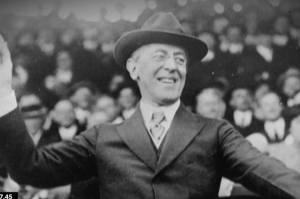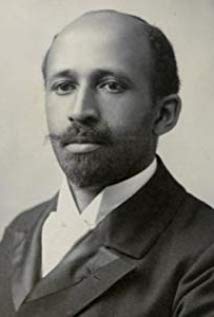 In 1912 Woodrow Wilson, the Democratic candidate for president, promised fairness and justice for blacks if elected. In a letter to a black church official, Wilson wrote, “Should I become President of the United States they may count upon me for absolute fair dealing for everything by which I could assist in advancing their interests of the race.”
In 1912 Woodrow Wilson, the Democratic candidate for president, promised fairness and justice for blacks if elected. In a letter to a black church official, Wilson wrote, “Should I become President of the United States they may count upon me for absolute fair dealing for everything by which I could assist in advancing their interests of the race.”
African Americans had strongly supported Wilson for President.
At one point, he released a statement to the National Colored Democratic League assuring the members that he opposed “unfair discriminating laws against any class or race” and believed “that the qualifications for voting should be the same for all men.” He added:
I want to assure them through you that should I become President of the United States, they may count upon me for absolute fair dealing and for everything by which I could assist in advancing the interests of their race in the United States.
But after the election, Wilson changed his tune. He dismissed 15 out of 17 black supervisors who had been previously appointed to federal jobs and replaced them with whites. He also refused to appoint black ambassadors to Haiti and Santa Domingo, posts traditionally awarded to African Americans. Two of Wilson’s cabinet ministers, Postmaster General Albert Burelson and Treasury Secretary William McAdoo, both Southerners, issued orders segregating their departments. Throughout the country, blacks were segregated or dismissed from federal positions. In Georgia, the head of the Internal Revenue Division fired all black employees: “There are no government positions for Negroes in the South. A Negro’s place in the corn field.” He said. The President’s wife, Ellen Wilson, was said to have had a hand in segregating employees in Washington, encouraging department chiefs to assign blacks separate working, eating, and toilet facilities. To justify segregation, officials publicized complaints by white women, who were thought to be threatened by black men’s sexuality and disease.
 W.E.B. Du Bois sharply criticized President Wilson in The Crisis: “The federal government has set the colored apart as if mere contact with them were contamination. Behind screens and closed doors they now sit as though leprous. How long will it be before the hateful epithets of ‘Nigger’ and ‘Jim Crow’ are openly applied?”
W.E.B. Du Bois sharply criticized President Wilson in The Crisis: “The federal government has set the colored apart as if mere contact with them were contamination. Behind screens and closed doors they now sit as though leprous. How long will it be before the hateful epithets of ‘Nigger’ and ‘Jim Crow’ are openly applied?”
The NAACP’s active campaign forced Wilson to back off from segregating the federal government. Jim Crow was checked but not rooted out. It would remain in place until the New Deal of Franklin Roosevelt.
Source: PBS, Federal Highway Administration
Published by Black Then: Discovering Our History ~ June 12, 2019

 FAIR USE NOTICE:
FAIR USE NOTICE: